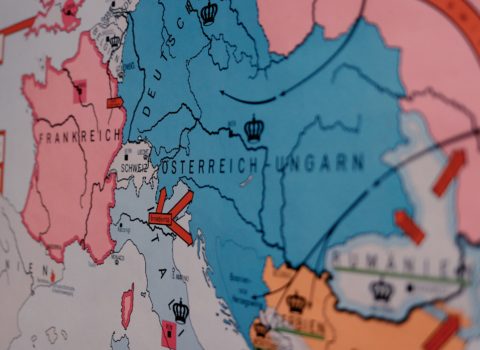
Cities and regions under the spell of (de-)globalization
Edition No. 63 of the Italian-German Historical Institute's Study Week took place from Oct. 12 to 14, 2022.
World History (also called Global History) is a method of historiographical inquiry emerged in 1980 that examines history from a global perspective by transcending national and regional views. It detects and analyzes frameworks and patterns applicable to all human cultures in historical evolution. The study of this discipline is based on two main historiographical categories: syncretism (how historical processes have brought disparate cultures closer together) and discrepancy (variety and differences among social patterns).
The topic of the conference has already been the subject of reflection through the publication of Annali.Recensioni.Online, shedding new light on the historiography of global history and globalization.
The proceedings were opened by Christoph Cornelissen, professor of Contemporary European History at the University of Frankfurt and director of FBK-ISIG. The following is a summary of his introductory speech, which traces the premises, goals and development of the conference.
Since the 1990s, it has become quite common to use terms such as global, entangled or connected history. The success of this approach has made its mark in various fields and led to the writing of global history of individual nations. Today, however, it is difficult to ignore that the questions, methods and concepts of global history have reached their limits. Representatives of studies from different areas argue that historically distinct processes could be distorted by the discourse on the processes of widespread globalization.
This fundamental shift in the debate on global historical phenomena, for reasons well known, can also be seen as the result of broader historical experiences. While the early years of the millennium represented seemingly unstoppable waves of globalization-an impression strongly fostered by the expansion of financial markets-the major global crises after the housing market collapse in the United States and the ensuing turmoil in the banking sector have brought about considerable change: in politics, economics and even in academia. In the wake of the recent pandemic, several observers even determined that globalization was in danger of coming to an abrupt halt.
Because of the changing conditions, the language of historians has changed again. Today, de-globalization and disconnection are among the new key concepts in an approach that combines broader topical experiences in the study of similar historical configurations.
In particular, from the perspective of the conference organizers, cities and regions lend themselves to a deeper study of said phenomena. They represent concrete spaces that can enable us to examine the juxtaposition, complexity and counter-processes of globalization and de-globalization as precisely as possible.
The approach taken by the European scholars convened at ISIG allows us to study the impact of globalization and de-globalization processes by examining various case studies from different eras, different countries and different continents, taking into account the experiences of various social groups.
The aim of the conference was not to demonstrate a prevailing trend toward globalization or de-globalization, but to examine how the associated political, economic and social challenges have been locally applied, adapted to local conditions or avoided.



